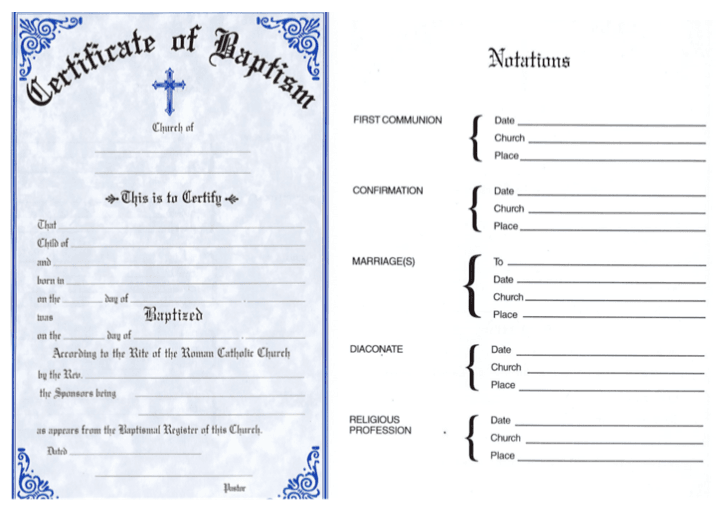Catholic Baptismal Certificates - Why Are They So Important?
Parish Liaison for Baptism: Joanie Hendricks, Director of Children’s Formation, jhendricks@stpatlou.org
In the Catholic faith, baptism certificates are more than a recording of the person’s date of baptism, the church of baptism, and godparents. The front of a traditional certificate provides this information. The back of the certificate is an integral part of the document but is rarely discussed.
The back of every Catholic baptismal certificate provides a journey through a person’s sacramental life. When a person is baptized at a Catholic Church, this becomes their parish of record or the place that officially records all of a person’s sacramental records. For example, if you were baptized at St. Patrick, this is your parish of record. If you celebrate other Sacraments of Initiation elsewhere, that parish will notify St. Patrick via a formal letter, and St. Patrick will record those details in your record. These details will then be added to any future baptismal certificate. A picture of a baptismal certificate is listed below, which will help illustrate what we mean.
Should you ever request a copy of your baptismal certificate, it should come from your parish of record and will include all of these notations, which is vital when someone is serving as a godparent or sponsor, being married in the Church, or seeking an annulment.
Effective immediately, St. Patrick will require all sponsors and godparents (who must have received the Sacraments of Confirmation and Eucharist) to produce a copy of their baptismal certificate that includes the sacramental notations. This ensures that each person serving in these vital roles meets the canonical requirements (requirements set by the Roman Catholic Church) of the role. These can be obtained with a simple call to the parish of record office. If the parish no longer exists, you would call the parish that merged/absorbed the parish of record or that diocese tribunal (the judicial arm of the local bishop that assists in Church law and sacrament record-keeping and administration) office.



